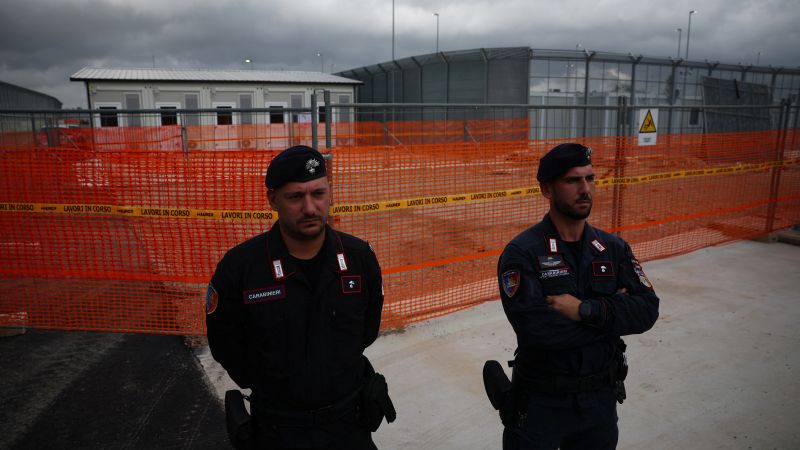European countries aiming to adopt Italy’s contentious practice of sending some asylum seekers to offshore centers have encountered significant legal obstacles. On October 20, 2023, the European Court of Justice (ECJ) ruled that while Italy can continue to operate its centers in the Albanian cities of Shengjin and Gjirokastër, the criteria for sending asylum seekers there must be more stringent. The decision emphasizes the need for effective judicial review to ensure that individuals are not returned to perilous conditions in their home countries.
The ruling specifies that a country can only be deemed “safe” if it has undergone thorough judicial scrutiny, ensuring safety for all residents, including vulnerable and marginalized groups. This judgement is poised to have a profound impact on new EU asylum regulations scheduled to be implemented in June 2024, which aim to enable member states to establish their own lists of “safe” countries to expedite the asylum process.
The EU’s provisional list includes countries such as Bangladesh, Colombia, Egypt, India, Kosovo, Morocco, and Tunisia. Human rights advocates, including Amnesty International, have raised concerns about the safety of these nations for all individuals. In a statement released in July 2023, the organization pointed out that the criteria deeming certain countries safe neglects the fact that up to 20% of applicants from these regions are recognized as refugees. “This reality indicates that these places are, in fact, not safe for everyone,” the statement remarked.
The ECJ’s ruling was influenced by the cases of two Bangladeshi asylum seekers detained in Albania, who argued that returning to Bangladesh posed significant risks. This legal decision arrives at a time when several European nations are exploring the establishment of similar deportation schemes, inspired by Italy’s partnership with Albania.
Italy’s initiative, which involves a multi-million-euro investment in detention centers and “return hubs” in a non-EU country, has been seen by some as a potential model for managing migration. However, a recent study by the University of Bari revealed that this scheme has already cost Italy over €74.2 million (approximately $86 millionUrsula von der Leyen, the President of the European Commission, and Charles Michel, the former President of the European Council, praised Italy’s landmark agreement in 2023. Additionally, the EU established a set of reforms aimed at streamlining the continent’s management of migration and asylum processes, particularly concerning migrants from designated “safe” countries. This pact, characterized as “fair but firm,” seeks to alleviate the burden on nations that have historically received the most asylum seekers among the EU’s 27 member states.
Italy’s far-right Prime Minister Giorgia Meloni criticized the ECJ’s decision, describing it as short-sighted and detrimental to efforts against illegal immigration. “This is a development that should concern everyone, including those political forces celebrating today,” she stated, emphasizing that it restricts the already limited scope for governments to regulate migration effectively.
Meanwhile, the fate of nearly a dozen individuals currently held in Italy’s detention centers in Albania, many from countries such as Egypt and Bangladesh, remains uncertain as European nations grapple with the implications of the court’s ruling. This ongoing situation reflects the complexities of migration policy within Europe and highlights the challenges of balancing national security with humanitarian obligations.





































































